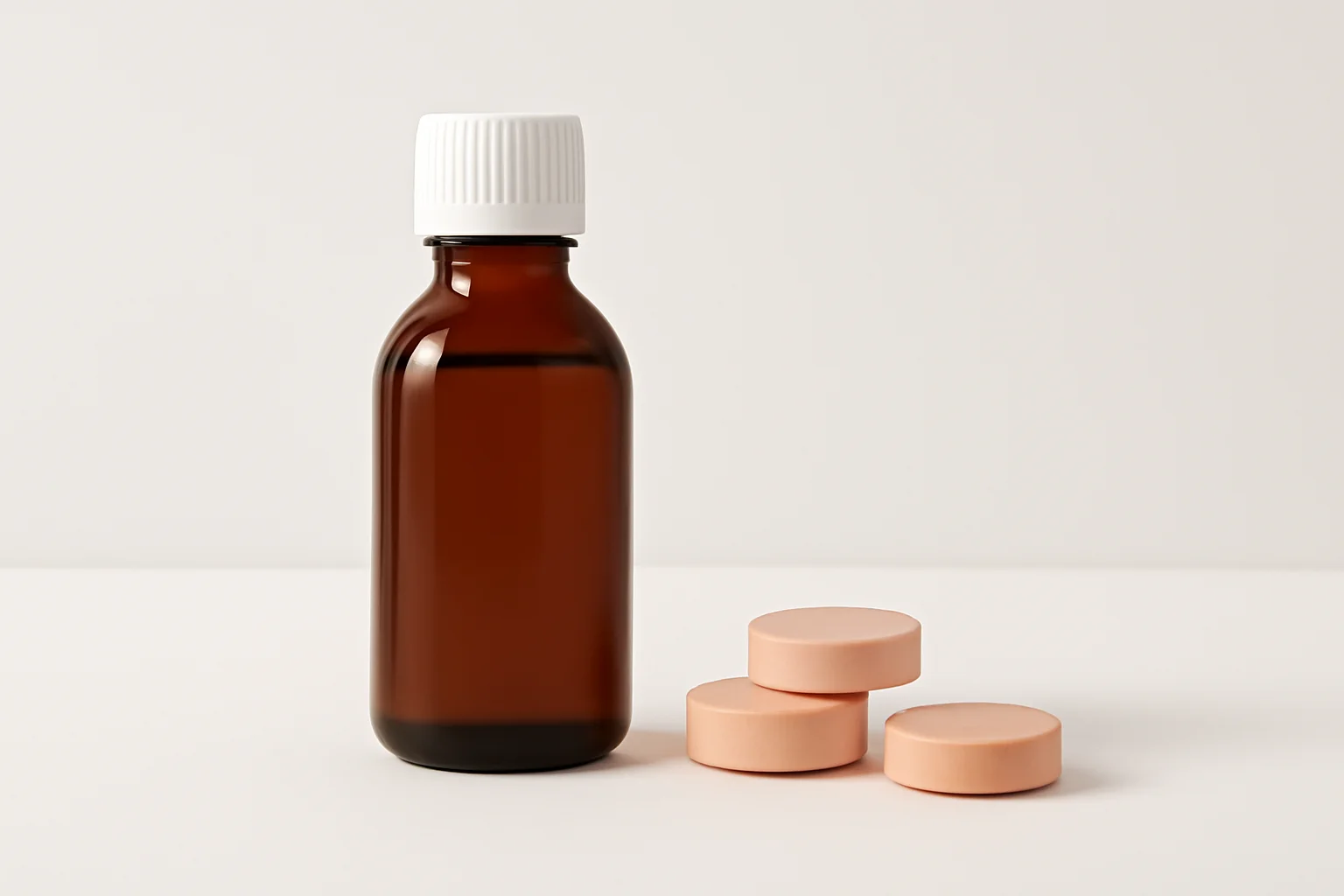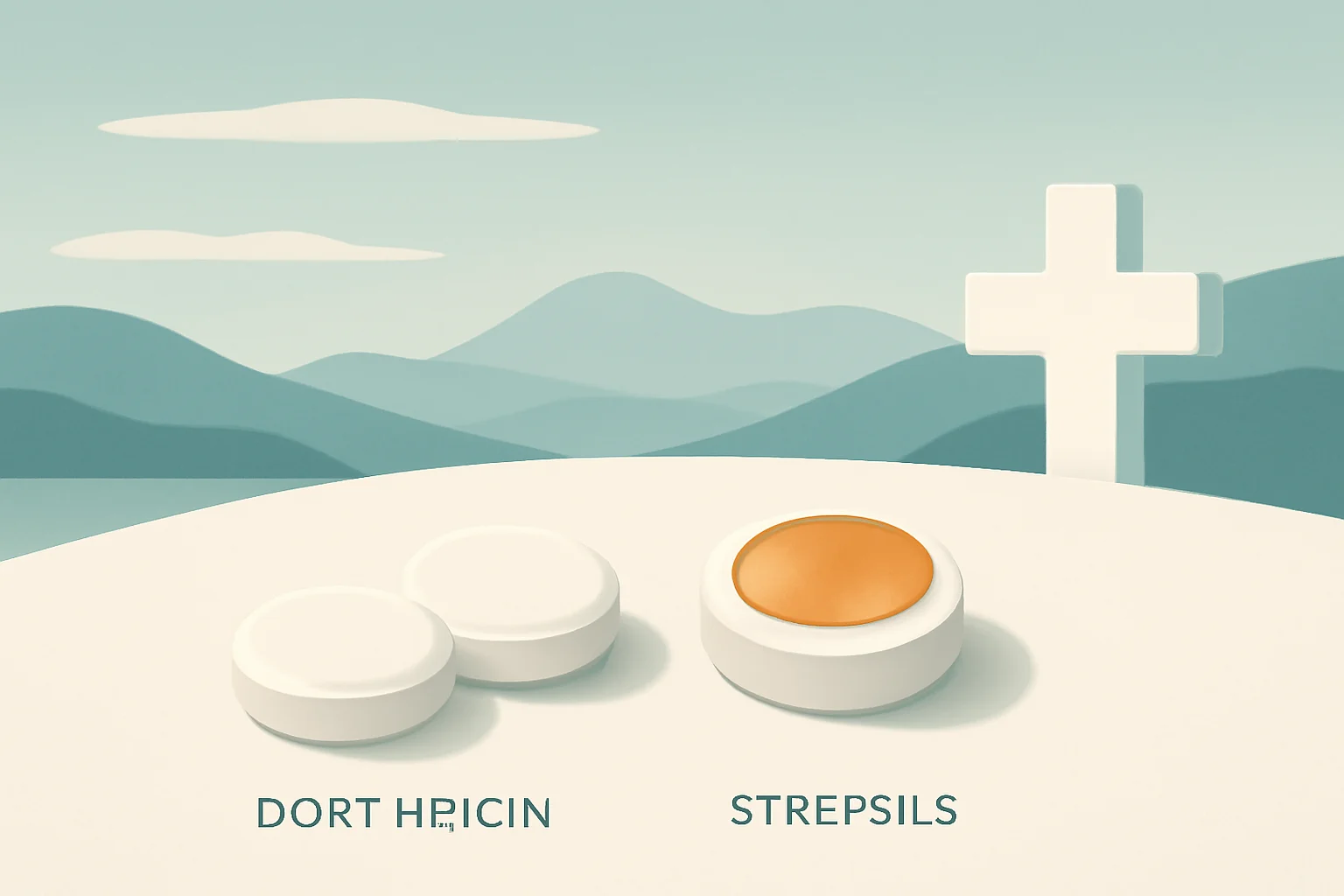
Syrup or Chewable Tablet: Which is the More Effective Choice?
A cold and flu season, choosing between different forms of medication can be crucial in alleviating symptoms. Various preparations are available to help treat cough, sore throat, or nasal congestion. Two popular alternatives to choose from are syrups and chewable tablets. Both have their own advantages and disadvantages, and the choice often depends on personal preferences, the nature of the symptoms, and treatment needs.
Syrups: Advantages and Disadvantages
Syrups are widely used forms of medication, especially for treating coughs and sore throats. Due to their liquid consistency, syrups are easy to swallow and often have a pleasant taste, which can be particularly important for children. Flavored syrups help ensure that taking the medication is not an unpleasant experience, making it easier for parents to get their children to take the necessary medicine.
The active ingredients in syrups generally absorb into the body more quickly than solid forms, providing immediate relief. Additionally, the dosing of syrups can be more flexible, as the required amount can be easily adjusted using a measuring cup or spoon.
However, syrups also have their drawbacks. Due to their liquid form, syrups can be difficult to transport, and their storage requires special attention. Moreover, syrups typically contain sugar or artificial sweeteners, which are not ideal for everyone, particularly for diabetics or those on a diet.
Overall, syrups provide a quick and pleasant solution for alleviating symptoms, but they may not always be the most practical choice in terms of portability and dosing.
Chewable Tablets: A Practical Solution
Chewable tablets are becoming increasingly popular as they offer a convenient and practical alternative to syrups. These forms of medication do not require water, making them easy to take anywhere and anytime. This can be particularly useful when on the go or when suitable conditions for taking medication are not available. Chewable tablets are generally tasty, which also contributes to their easy consumption.
Dosing with chewable tablets is simple, as the required amount can be easily taken based on the quantity indicated on the packaging. Additionally, chewable tablets often do not contain sugar, making them a more suitable alternative for diabetics and health-conscious individuals compared to syrups.
However, there are also disadvantages to chewable tablets. The active ingredients in solid forms may absorb more slowly in the body, which can delay the effect. Furthermore, not everyone may enjoy the texture or taste of chewable tablets, so the choice may depend on personal preferences.
Overall, chewable tablets offer a convenient and practical solution, especially for those who lead active lives and travel frequently.
How to Choose Between the Two?
When choosing between syrup and chewable tablets, several factors need to be considered. First, it is important to be aware of your own symptoms and how quickly you need relief. If immediate relief is required, syrups may be the more suitable choice, as they absorb faster.
Secondly, practical considerations should also be taken into account. If you travel often or are frequently on the go, chewable tablets provide a more convenient alternative since they do not require water for consumption. Additionally, if sugar intake needs to be monitored, chewable tablets often offer a better solution.
Thirdly, personal preferences play a key role. If someone does not like liquid medications, then chewable tablets may be the better choice, while those who enjoy syrups may prefer this form for its pleasant taste and immediate effect.
Finally, it is advisable to consult a healthcare professional who can assist in selecting the appropriate alternative, taking into consideration individual health conditions and possible interactions with medications.
—
This article does not constitute medical advice. In case of health issues, please always consult your doctor.

